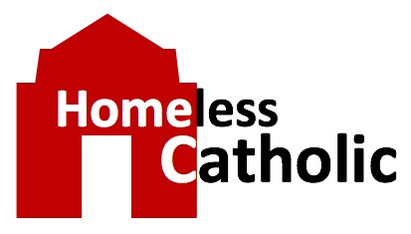What's the deal with Jerusalem?
People have a huge range of attitudes toward cities. When I drive through the western region of Kansas farmlands or the empty basin of Colorado’s South Park and see only a few scattered homes sprinkled across the acres of expansive territory I inevitably sense an internal loneliness and know I could never live out there.
But large cities, where populations are counted in the millions, project their own aura of loneliness — at least for me — and I sometimes succumb to an anxiety similar to what I felt at the edge of the Grand Canyon: it’s too much to take in. But what’s so special about Jerusalem?
Reflection - Cities
http://usccb.org/bible/readings/093019.cfm
Zechariah 8:1-8
Luke 9:46-50
Cities, particularly older ones, sometimes bear the burden of their history, though that burden is not necessarily an oppressive one. We feel the burden when mention is made of abandoned cities whose glory passed long ago; cities like Angkor Wat in present day Cambodia and Macchu Picchu in today’s Peru come to mind. We are intrigued by cities of mystery: those buried beneath the sands in Egypt, those hidden beneath volcanic ash at the foot of Mt Vesuvius and, of course, the submersed city of Atlantis. We see the burden in the more modern cities of Rome and Constantinople, or even London and Paris — all of which are regularly overwhelmed with hoards of tourists.
People have a huge range of attitudes toward cities. When I drive through the western region of Kansas farmlands or the empty basin of Colorado’s South Park and see only a few scattered homes sprinkled across the acres of expansive territory I inevitably sense an internal loneliness and know I could never live out there. But large cities, where populations are counted in the millions, project their own aura of loneliness — at least for me — and I sometimes succumb to an anxiety similar to what I felt at the edge of the Grand Canyon: it’s too much to take in. For the same reason, I have always felt it peculiar that some people revel in the vibrancy of large cities like New York, Los Angeles, Tokyo or Calcutta. Brushing shoulder to shoulder on a daily basis with tens of thousands of others generates a pulse of life for some, though I find such constant association draining.
According to the Prophet Zechariah, God has his own affinity for cities — or maybe I should specify for a particular city. “I am intensely jealous for Zion, stirred to jealous wrath for her. Thus says the LORD: I will return to Zion, and I will dwell within Jerusalem.” Similar messages are found throughout the prophetic and wisdom literature of he Old Testament.
“Blessed be the LORD from Zion, he who dwells in Jerusalem! Praise the LORD!” (Psalm 135:21)
Jerusalem is the focal point of the nation; in at least one sense it is the nation. It is there that the people of God regularly gather. It is there that prayer and sacrifice are most appropriately offered.
“Jerusalem, built as a city which is bound firmly together, to which the tribes go up, the tribes of the LORD, as was decreed for Israel, to give thanks to the name of the LORD.” (Psalm 122:3-4)
It was to Zion that the Messiah would come. From there his kingdom would spread and all who witnessed it would see the glory of God.
“In that day the branch of the LORD shall be beautiful and glorious, and the fruit of the land shall be the pride and glory of the survivors of Israel. And he who is left in Zion and remains in Jerusalem will be called holy, every one who has been recorded for life in Jerusalem.” (Isaiah 4:2-3)
In fact, such a wonder is described in the book of Revelation.
“And I saw the holy city, new Jerusalem, coming down out of heaven from God, prepared as a bride adorned for her husband.” (Revelation 21:2)
Why the Lord has such an attachment to this particular city is beyond me. Others have more beautiful natural settings. Others are immensely larger. Others have a more glorious history. And still others are better known for their structural beauty. But Zion is the place on earth which God would specify as uniquely his home.
FYI NOTE
Zion, also transliterated Sion, is a place-name often used as a synonym for Jerusalem as well as for the biblical Land of Israel as a whole. It originally referred to a specific hill in Jerusalem (Mount Zion), located to the south of Mount Moriah (the Temple Mount). Mount Zion held a Jebussite fortress of the same name that was conquered by David and was re-named the City of David. That specific hill ("mount") is one of the many squat hills that form Jerusalem, which also includes Mount Moriah (the Temple Mount), the Mount of Olives, etc.
The term Zion came to designate the area of Davidic Jerusalem where the fortress stood, and was used as well for the entire city of Jerusalem; and later, when Solomon’s Temple was built on the adjacent Mount Moriah (which, as a result, came to be known as the Temple Mount) the meanings of the term Zion were further extended to the Temple itself, the hill upon which the Temple stood, the entire city of Jerusalem and the entire biblical Land of Israel. (Wikipedia)

